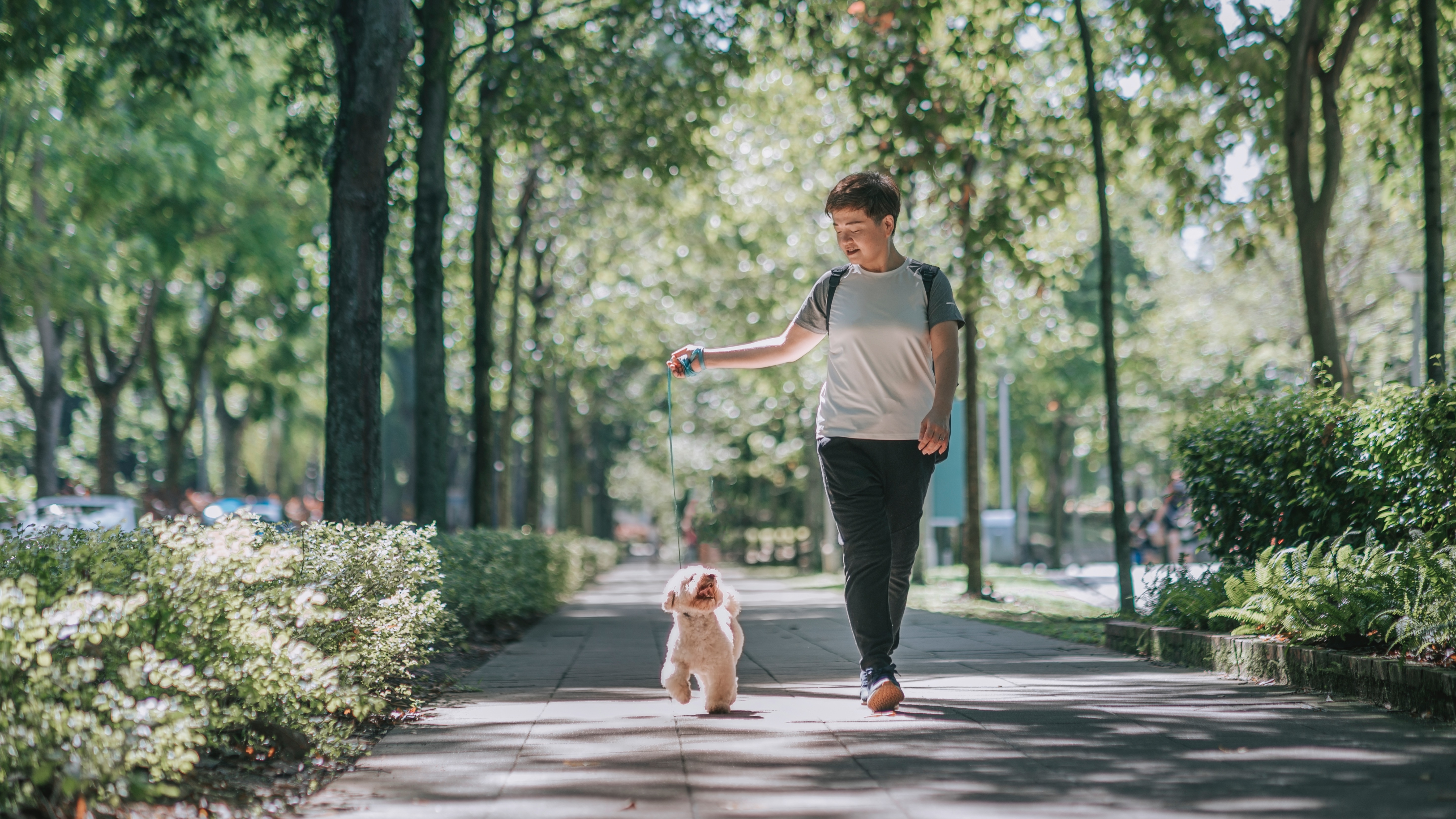
Different dogs will have different triggers, or things that they don’t like. When we think of triggers, we often associate them with reactive dogs, but any dog might have something that triggers them — even if, as humans, we know that there’s nothing to worry about.
It can be easy to manage triggers at home — we can simply avoid putting our pups in situations where triggers could arise. However, managing triggers when you’re on a walk or out in public might seem a bit more difficult — and some of the best dog treats will likely be involved.
And that’s why the certified dog behavior coaches at Calm Canine Academy have offered some valuable advice in a new Instagram post. Let’s take a closer look at what they have to say below.
In their video, a dog, Emily, is in the park and feeling nervous about a man running nearby. So, the Academy coaches recommend managing how she feels.
There’s a running path going through the park, so they pull Emily away from it and into the center of the field. “And now, as the guy comes past, we’re going to be feeding her, providing her a positive distraction,” they explain.
As a result, Emily, who had previously barked at the man, is no longer paying him any attention. As soon as the coaches notice that Emily is uncomfortable, they act to distract her, and give her something to do.
As they say, consistently offering your dog positive distractions around triggers can form as much as 90% of a training plan. And it’s not tricky to do — all you’ll need to bring are some doggy treats and maybe a favorite toy or two.
In the caption, they explain that proper exposure management is important, as without it, sensitive dogs will continue to have overwhelming experiences, build associations we don’t want them to make, and strengthen undesirable changes.
If you’re on a walk or out in public with your dog, and they’re displaying fear or anxiety — or are simply just overwhelmed — positive distractions are key! We don’t have control over what other people (or animals) do or where they go, but we have control over how we can help our own dogs.
If you have a reactive dog, and you’re finding it difficult to manage their triggers on walks, you might find this article useful: Owning a reactive dog is hard. Here's how I navigated the social challenges with my pooch.







